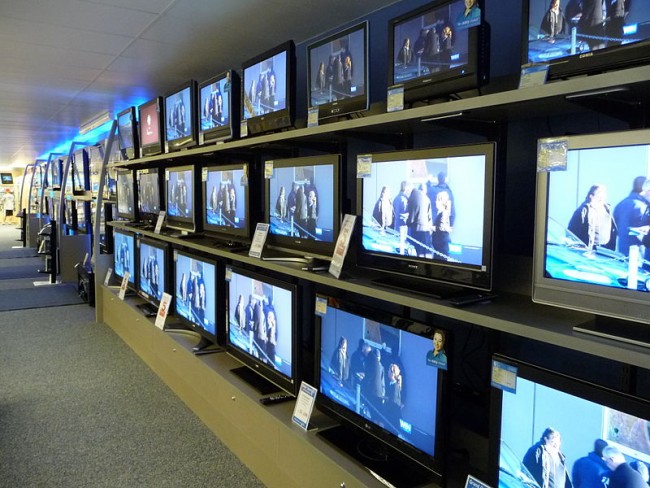 The website Aleteia ran an anti-television article by David Mills today titled “Turn it Off, Tune Out, Save Your Soul: Guard against exposure to bad ideas –they’re everywhere.”
The website Aleteia ran an anti-television article by David Mills today titled “Turn it Off, Tune Out, Save Your Soul: Guard against exposure to bad ideas –they’re everywhere.”
The article begins:
Except for the occasional football or baseball game, I don’t miss having a television and think other people should get rid of theirs the way we did ours. I know that people who talk about their giving up television affect most people the way joggers and early risers affect me. I want to say bad words and frighten them into silence.
I also know giving up television’s not for everyone, that it can teach you things, that you can stream classic movies and great documentaries, that reading can be almost as mind-vacating an activity as watching television, and that even those of us without televisions have the internet with which to fill up our time.
Yes, true. But even if television were better than it seems, we have to police what goes into our minds and if we have children what goes into theirs, and that policing ought to be a lot more stringent than it usually is. It’s usually like the genial English bobby of children’s story books, willing to look the other way, when it ought to be like a North Korean border guard.
You can read more here.
I’m sure Mills is well-intentioned, and I sympathize with parents who struggle to find shows they can watch with their kids as a family. That being said, I still think that perpetuating an anti-TV culture, especially among Christians, can be harmful in the long run.
For instance, a lot of Christians have already given up on television because they say it doesn’t reflect their values. If they watch anything at all, it’s explicitly religious networks or shows. But when a large group of people stops watching TV, programming executives with the power to choose what shows make it on the air can ignore that group. The Christian complaint that there’s nothing good on TV becomes self-fulfilling because the Christian audience has removed itself from the equation.
The anti-TV attitude may also turn off Christian youth with creative talents from pursuing a career behind-the-camera where they could actually make a difference in improving the culture. When the entire TV industry is seen as a lost cause or as unimportant or simply as a morally corrupting influence, why would a young person want to get involved?
Instead, TV should be seen as a mission field where Christians, who have first taken the time to learn their craft to the best of their abilities, can bring light to the darkness. You may not like the content of a lot of shows today, but they are generally well-produced and know how to tell stories. If young people would learn those production and storytelling techniques, then use them to tell mainstream stories of their own that reflect their values, an impact could be made.
Consider that TV, up until our recently more mobile-capable times, was watched in a living room. Who do you usually have in your living room? Family and friends. As hokey as it sounds, TV characters who viewers watch every week for a period of 22 episodes become like family and friends in a sense. The stories they tell can connect with viewers and serve as a teacher or an inspiration.
Just last night, I watched a PBS documentary about Mary Tyler Moore in which Oprah Winfrey said she was inspired to get into television because of Moore’s news-producer character on her self-titled sitcom. Also, I once heard American Idol winner Kelly Clarkson say in an interview that when strangers approach her somewhere, they act like they’re old friends who’ve known her all their lives. She attributed that reality to the fact that she was a presence in their living rooms for several months.
That’s cultural power. Why would Christians want to give up on that?
Finally, there’s also the argument that a lot of people on TV set a bad example, that they’re exposing us to “bad ideas.” Here’s another perspective: my favorite sitcom of the last 20 years is “Everybody Loves Raymond.” Boy, was there a lot of arguing going on in that show! You could say it was setting a bad example by showing all that fighting.
What I’m left with from “Raymond,” however, isn’t the fact that they fought a lot; it’s that they never let it get in the way of their being a family. Once you waded through all the comedic bluster, these were characters who genuinely loved each other and stuck together despite their differences. That’s a pretty good example in my book.
So before you decide to completely ditch television, see if there are ways you can use it to some advantage. It’s a powerful tool that will shape hearts and minds with your input – or without it.
(Photo courtesy “Cptvdisplay” by Wags05 (talk) Licensed under Public Domain via Wikipedia – https://en.wikipedia.org/wiki/File:Cptvdisplay.jpg#/media/File:Cptvdisplay.jpg)












